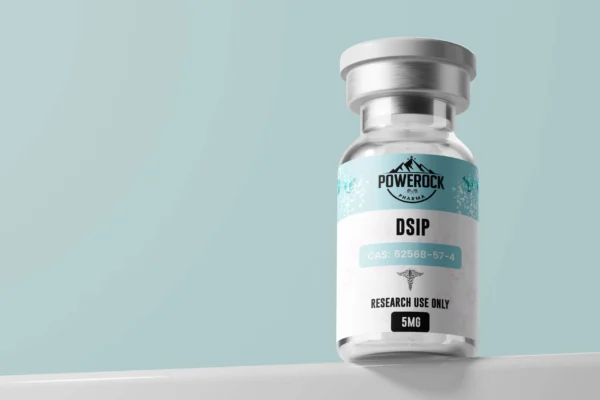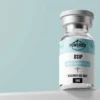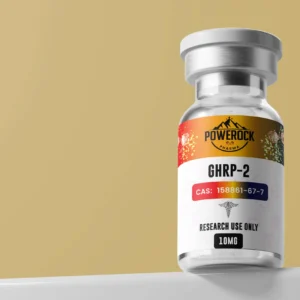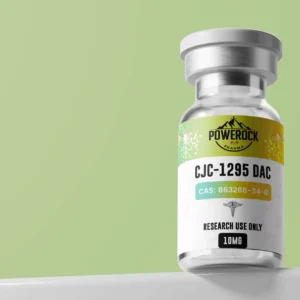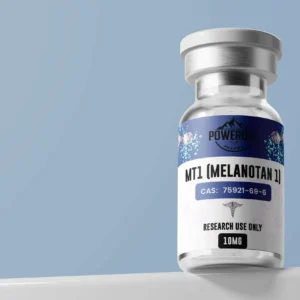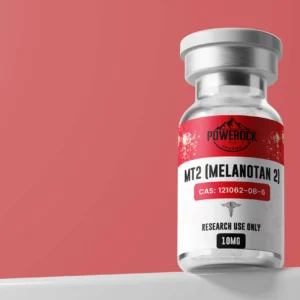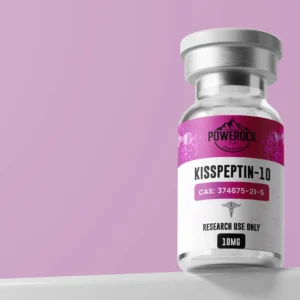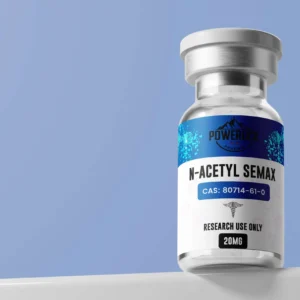Properties:
Delta Sleep Inducing Peptide (DSIP) is a potent neuropeptide recognized for its ability to promote restorative sleep and reduce stress levels. Known for its calming effects on the central nervous system, DSIP is particularly valuable for researchers studying sleep disorders, stress-related conditions, and overall mental health. This compound works by influencing the body’s natural sleep-wake cycle, helping to regulate sleep patterns, which can be disrupted by various factors such as stress, anxiety, or irregular schedules. Additionally, DSIP has been shown to have potential benefits in modulating hormonal levels, particularly those related to stress, making it a versatile tool in research aimed at understanding sleep and stress-related mechanisms.
Mechanism of action:
DSIP primarily acts by modulating the body’s sleep-wake cycle through interactions with various neurotransmitters and hormonal pathways. One of the key actions of DSIP is its influence on the production of adrenocorticotropic hormone (ACTH), which is involved in the body’s stress response. By inhibiting excessive ACTH release, DSIP helps reduce stress levels, which in turn facilitates deeper and more restful sleep. Additionally, DSIP interacts with the body’s endogenous opioid system, contributing to its stress-relieving and sleep-promoting effects. This selective action ensures that DSIP can promote sleep without causing the drowsiness or dependency issues often associated with traditional sleep aids, making it a safer option for long-term research.
Benefits:
Consistent use of DSIP in research settings can lead to a range of observed benefits, including enhanced sleep quality, improved stress management, and better overall mood stability. Researchers may also note secondary benefits such as reduced anxiety, improved cognitive function due to better rest, and a more balanced hormonal profile, particularly with respect to stress-related hormones like cortisol. DSIP is particularly effective for studies focusing on sleep disorders, stress management, and related fields where the regulation of sleep and stress is crucial.
Why Powerock Pharma:
At Powerock Pharma, we are dedicated to providing the highest quality research compounds. Our DSIP is produced under stringent conditions, adhering to GMP, HACCP, and ISO 13485 standards to ensure safety, potency, and purity. Each batch undergoes rigorous testing in state-of-the-art laboratories to confirm its efficacy and consistency. Our commitment to quality means that researchers can trust that our DSIP will deliver reliable results, time after time. Powerock Pharma is your partner in advancing scientific knowledge, offering only the best products for your research needs.
Summary:
For those researching sleep enhancement and stress reduction, Delta Sleep Inducing Peptide (DSIP) offers a scientifically backed solution. Powerock Pharma’s rigorous quality controls ensure that this product is safe, effective, and reliable. Don’t compromise on your research—order DSIP today and take the next step in unlocking the mysteries of sleep and stress management.
Chromatogram DSIP
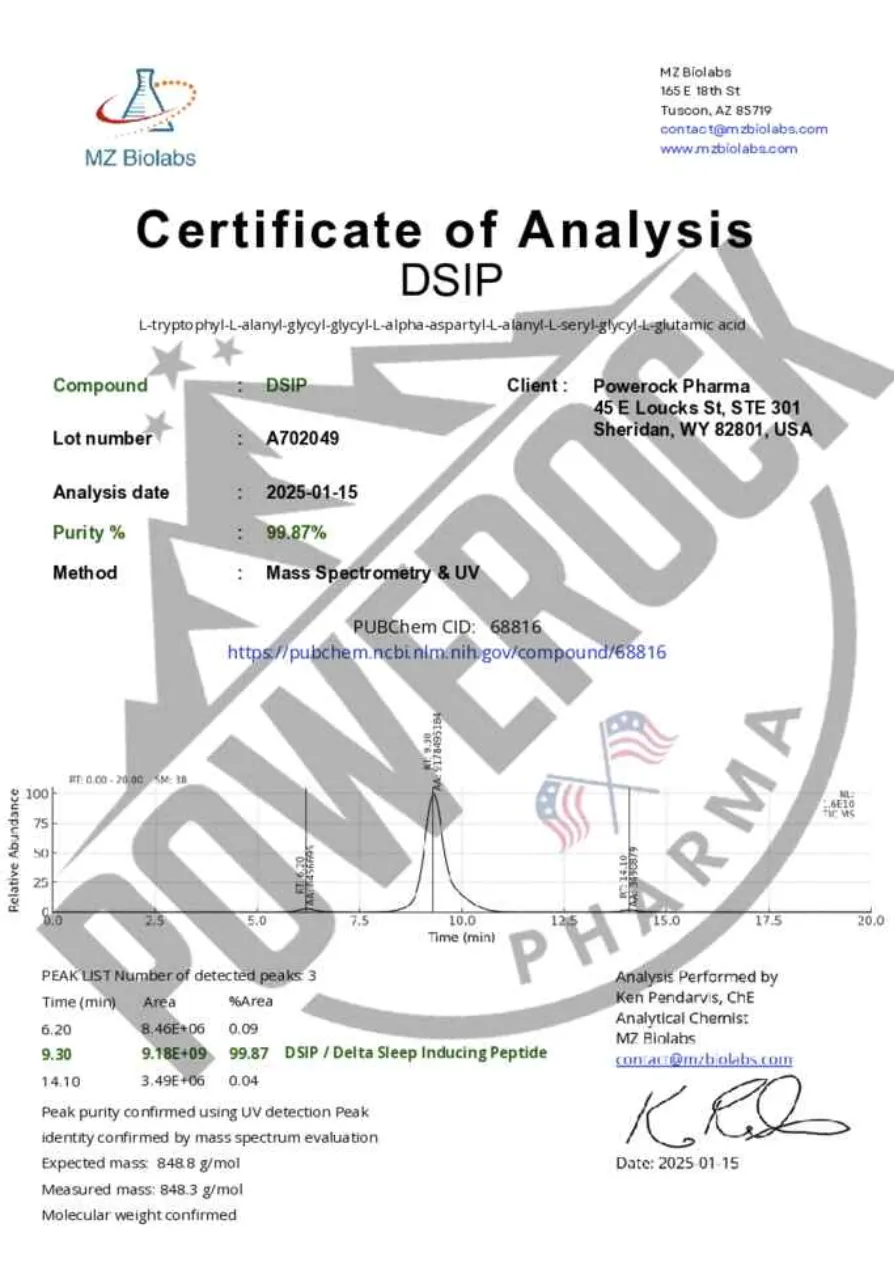
Research Method DSIP
How to use DSIP
How to take:
Administer Delta Sleep Inducing Peptide (DSIP) according to the research protocol. DSIP is typically reconstituted with bacteriostatic water before use. For research purposes, it is most commonly administered via subcutaneous injection, although other methods may be used depending on the study design. Ensure the solution is thoroughly mixed and administered with sterile techniques.
When to take:
For optimal results, administer DSIP at consistent intervals, preferably in the evening or before sleep, to align with the body’s natural circadian rhythms. This timing helps in accurately studying its effects on sleep induction and stress reduction.
Cycle length:
The recommended research cycle length for DSIP is typically 8-12 weeks. This period allows sufficient time to observe its effects on sleep patterns and stress levels, as well as any potential long-term impacts on hormonal balance and overall well-being.
Dosage for women:
For research involving female subjects, a starting dosage of 0.5 mg per administration is recommended. Adjustments can be made based on the specific objectives of the study and the responses observed. Monitoring is advised to ensure the dosage is effective without causing unwanted side effects.
Dosage for men:
For male subjects, a dosage of 1.0 mg per administration is commonly used. As with female subjects, this dosage can be adjusted according to the study’s goals and the participant’s response. Close observation is necessary to ensure accurate data collection.
Monitoring:
Continuous monitoring of subjects is essential throughout the research cycle. This includes tracking sleep patterns, stress levels, hormonal profiles, and any adverse effects. Regular data collection will help in assessing the efficacy of DSIP and making any necessary adjustments to the research protocol.
How to Stack DSIP
DSIP + Melatonin
DSIP is highly effective when combined with melatonin for enhanced sleep quality and regulation of circadian rhythms. This combination supports deeper, more restorative sleep, making it ideal for research into sleep disorders.
DSIP + L-Theanine
Stack DSIP with L-Theanine for stress reduction and relaxation. This combination can improve overall mood and reduce anxiety, providing a comprehensive approach to studying the effects of stress on sleep and mental health.
DSIP + GABA
Pair DSIP with GABA (Gamma-Aminobutyric Acid) to boost the calming effects on the central nervous system. This stack is particularly useful for research focused on anxiety disorders and sleep-related conditions.
DSIP + Magnesium
Combine DSIP with magnesium for improved sleep quality and muscle relaxation. Magnesium’s role in promoting relaxation complements DSIP’s sleep-inducing properties, making this stack beneficial for studies on sleep enhancement and recovery.
DSIP + Ashwagandha
Use DSIP alongside Ashwagandha for increased stress reduction and better sleep quality. This stack is ideal for research focusing on adaptogens and their synergistic effects on stress management and sleep.
Frequently Asked Questions About DSIP
What is the recommended dosage for research purposes?+
The recommended dosage for DSIP varies based on the subject’s gender and the specific research objectives. Typically, 0.5 mg is used for female subjects and 1.0 mg for male subjects. Adjustments should be made based on the response and data collected during the study.
Can this product be used in combination with other compounds?+
Yes, DSIP can be effectively combined with other compounds, such as melatonin, L-Theanine, or GABA, to enhance its sleep-inducing and stress-reducing effects. Ensure that any combinations are thoroughly researched and documented in your study protocol.
What are the potential side effects observed in research?+
In research, DSIP has shown minimal side effects when used appropriately. However, some subjects may experience mild drowsiness, changes in mood, or fluctuations in stress-related hormones. Continuous monitoring is advised to manage and document any adverse effects.
Is this product safe for long-term research?+
DSIP is generally considered safe for long-term research when used within recommended guidelines. However, prolonged use should be monitored closely to observe any cumulative effects, particularly on sleep patterns and hormonal balance.
How should this product be stored?+
DSIP should be stored in its powder form at a controlled room temperature, away from direct light and moisture. Once reconstituted with bacteriostatic water, it should be refrigerated and used within a specified period to maintain its efficacy and safety.
What makes Powerock Pharma products reliable for research?+
Powerock Pharma adheres to the highest quality standards, including GMP, HACCP, and ISO 13485 certifications. Our products undergo rigorous testing to ensure purity, potency, and consistency, making them highly reliable for research purposes.

